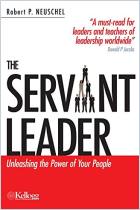Join getAbstract to access the summary!

Join getAbstract to access the summary!
Samuel B. Bacharach
Keep Them on Your Side
Leading And Managing for Momentum
Platinum Press, 2006
What's inside?
Momentum is not just for physicists. Once you get your organization moving in the right direction, it is unstoppable.
Recommendation
This sometimes surprising book presents principles that many managers will be able to apply immediately. Samuel B. Bacharach writes clearly and maintains his focus on a single cluster of ideas: His main points are that implementation is an essential part of leadership, momentum is an essential part of implementation, and as a leader, you can maintain momentum by focusing on its key elements, which he explains and illustrates. He includes examples from many disciplines and historical periods: his use of Lewis and Clark as leadership models was one of the book’s pleasant surprises. However, Bacharach is better at describing common dilemmas than at solving them. Once he’s persuaded you to balance “directive” and “facilitative” leadership, you still have the big challenge of figuring out how. Even though some of his concepts are not entirely new, getAbstract recommends this book to leaders who want to brush up on basic principles, and who appreciate seeing them refreshed and reframed.
Summary
About the Author
Samuel B. Bacharach is the author of numerous articles and several books on business, including Get Them on Your Side. He’s the McKelvey-Grant Professor at Cornell’s School of Industrial and Labor Relations.


















Comment on this summary